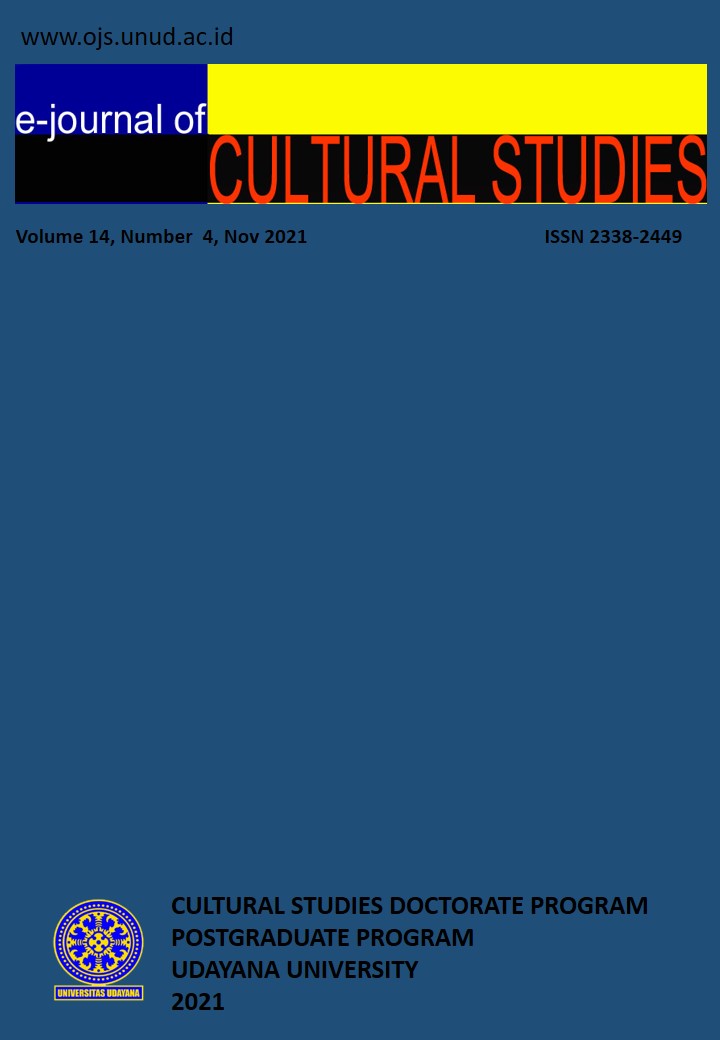PRACTICE OF TEMPLE DEVELOPMENT GRANTS’ DISCOURSE OF BADUNG DISTRICT GOVERNMENT, BALI
Abstract
This paper analyzes the policy of development grants in the cultural and religious sector of the Badung Regency Government in Bali with the realization of assistance targeting community groups in the construction of the physical infrastructure of the temple as a Hindu holy place that has political tendencies and power. This topic is researched because it is one of the public policies that is sentimental and very intimate because it directly touches social life and previous cultural values. The problem examined in this study is how the mechanism, strategy, which is carried out by the agent in exercising power. The power in question is not the power of a person but the power is everywhere and intertwined with knowledge. This research data was obtained based on the results of interviews, observations, and documentation studies which were then analyzed with the theory of power and knowledge by Foucault, and practical theory by Pierre Bourdieu. The analysis in is first indicated a mutually beneficial process between the lead district government, legislative members who became facilitators and the community, the application of religious, customary, and cultural concepts in perpetuating power and pragmatism and lack of education.
Keywords: temple development grant, public policy, power relations







